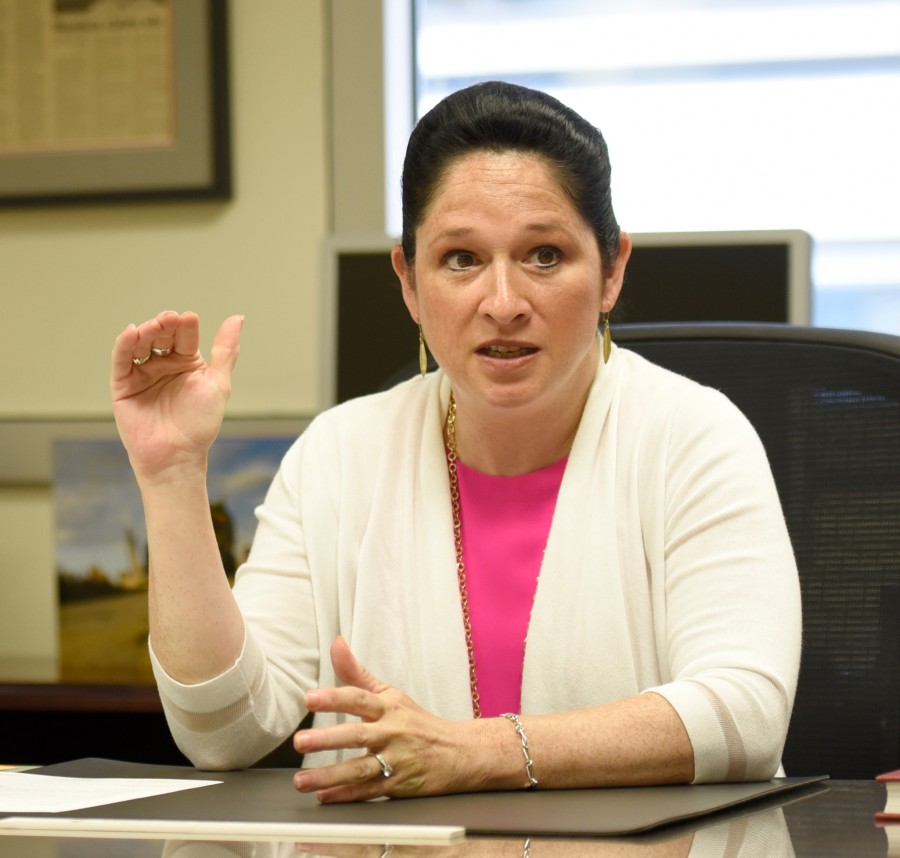Mendoza Warns Of ‘Complete Meltdown’ If No Agreement Reached On School Funding
By Tony Arnold

Mendoza Warns Of ‘Complete Meltdown’ If No Agreement Reached On School Funding
By Tony ArnoldIllinois Comptroller Susana Mendoza warned Friday that schools across Illinois won’t have enough money in reserves to stay open more than a few months if Democratic state lawmakers continue an entrenched and lengthy fight with Gov. Bruce Rauner over a plan to release state education funding in time for students’ return to the classroom.
“This will be a matter of months before we see a complete meltdown of our K-through-12 educational system here in the state of Illinois,” Mendoza said on WBEZ’s Morning Shift.
Senate President John Cullerton, D-Chicago, has been holding onto a bill that would overhaul how the state distributes money to schools, moving to an “evidence-based” model that would send more money to poor school districts. Cullerton’s hold could have broader fiscal consequences because of a provision in the recently passed state budget that requires the state to approve a new funding formula in order to release money for schools.
That set up another showdown between the governor and Democratic legislative leaders. Cullerton said he will send Rauner the bill on Monday, but questioned Rauner’s “mental state” for saying he would veto it and, therefore, put all school funding in jeopardy.
Rauner, meanwhile, has challenged the political motivations of Democrats who passed the bill, accusing them of wanting to bail out Chicago Public Schools by directing state money to the district’s underfunded pension system. He has said he will issue an amendatory veto to change the bill in a way that would redistribute money earmarked for Chicago to other school districts around the state — a move meant to put political pressure on lawmakers outside Chicago because it would appear they’re voting against their own school districts if they don’t agree with Rauner’s changes.
House Speaker Michael Madigan said this week there would be enough votes to override Rauner’s amendatory veto, though Republicans dispute that. Rauner called lawmakers into special sessions since Wednesday, though since the school funding bill still has not been sent to Rauner they haven’t had any veto to try and override.
In a statement Friday morning, Rauner vowed to act on Monday — assuming Cullerton releases the bill at that time. Rauner said he would designate key Republicans to reach out to Democrats to negotiate over the weekend.
“If a reasonable compromise that is in the best interest of our children isn’t reached, I will move forward with my amendatory veto on Monday as planned,” the governor was quoted as saying in an email.
Mendoza, who as comptroller sends checks on behalf of the state, said schools would normally receive their first checks from the state on Aug. 10. She said some schools have already made it clear they will not be able to open for the first day of school if that money does not arrive. Other schools, Mendoza said, will have to dip into their reserves if the political impasse drags on.
“This shouldn’t even be up for discussion right now and it should not be a fight that’s being had,” Mendoza said Friday morning.
The comptroller also played a role in the past two years, scraping together court-authorized payments to Medicaid providers and child welfare agencies while there was no full state budget. Illinois state government now owes about $14.6 billion in late bills.
“I think it’s absolutely unconscionable that we do pay 12 percent interest on late payments but that’s the penalty the state has for having been a deadbeat,” Mendoza said.
Lawmakers approved a full state budget — that includes an income tax increase — earlier this month over Rauner’s veto.
Tony Arnold covers Illinois state politics for WBEZ. Follow him at @tonyjarnold.
